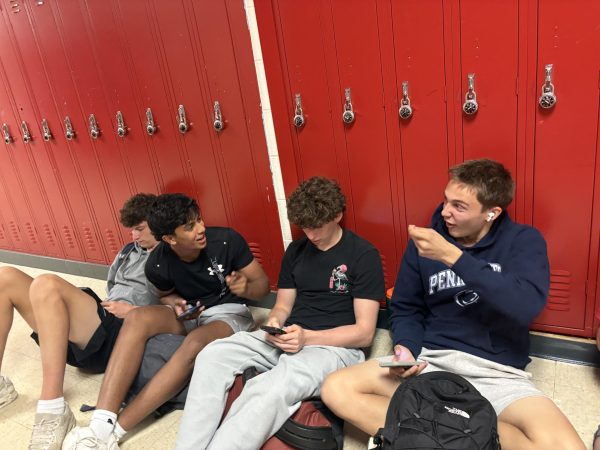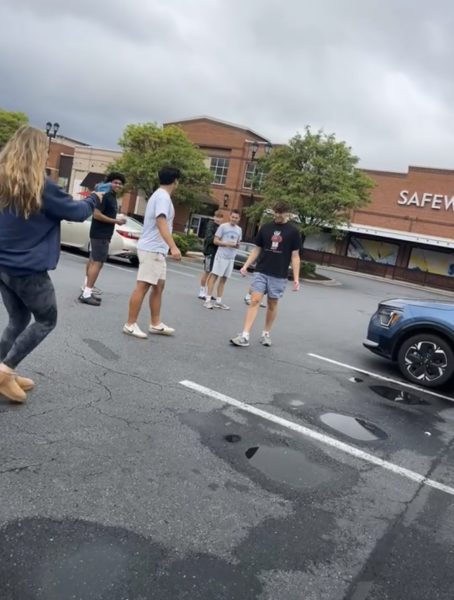Freshman develops website to track carbon footprint of MCPS, hold county accountable
Freshman Rishi Iyer works on his computer coding his website, co2schools.com
Freshman Rishi Iyer developed a website, co2schools.com, to track Montgomery County Public School’s carbon footprints. The amateur website developer said he came up with the idea while talking at the dinner table and sees it being used as a tool by the county to measure carbon output over the long term.
Users can select which elementary, middle, or high school they want to track the carbon output of. Then, plug-in data based on the transportation, energy and waste of the school. This data is used to calculate the annual and current CO2 emissions of the school. Iyer said he sees the website being used to track school’s carbon footprints in the long term, to see how different initiatives, like the county’s new electric buses for example, affect it.
After tracking the carbon footprint, schools can make changes to be more environmentally conscious. “Administrators, school principals, anybody can use this to track their school’s carbon footprint over a few years. It’s more of a long term thing,” Iyer said.
The website is modeled after the Environmental Protection Agency website, where individuals can track their carbon footprints, but with options specific to Montgomery County schools. “[My family] was talking about climate change at the dinner table and how you can track the carbon footprint of your house. One thing just led to another,” Iyer said.
Iyer is continuing to update the website as new data comes in, which is what he sees are the next steps to improving the accuracy of the application. Students can plug in data for whether they drive to school or take the bus, but actions like carpooling are not yet accounted for.
Iyer said he thinks overall, the county is pretty forward thinking in terms of climate change. Tracking carbon footprints, though, would be even better. “They recycle paper and turn it into energy. Also, Montgomery County has a bunch of activist groups who can work together to use this website,” Iyer said.
Board of Education member Lynne Harris says she sees the website as a tool schools can use to become more sustainable and accountable. “This gets to so many things that I’m hoping that the school system is going to tackle in earnest going forward. I look at this as something that a dedicated team of students could implement at each of our schools,” Harris said.
Iyer is just one of the students around the county pushing for a more sustainable school system. Groups like Moco Students on Climate and the Youth Climate Action Team are pushing policymakers to enact more eco-friendly policies within schools, including introducing more comprehensive climate change education in the curriculum and lowering carbon emissions.
Harris says there are economic benefits as well to increasing sustainability in schools. “We keep this data of each school… because there are real economic benefits to a school from meeting their benchmarks [of sustainability]. It’s one way for us to, with pure data, get to some of the disconnects in our system,” Harris said.
Your donation will support the student journalists of Thomas S. Wootton High School. Your contribution will allow us to purchase equipment and cover our annual website hosting costs.
Ellie Cowen is a 2022 graduate.







